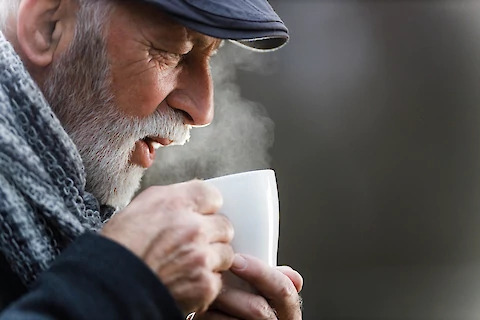
Hydration is a fundamental aspect of overall health and is particularly important for seniors. Despite being overlooked often, staying hydrated becomes significantly critical during winter months.
Seniors are susceptible to dehydration due to physiological changes leading to a diminished sense of thirst. This, coupled with the common misconception that staying hydrated is not as essential when it's not hot outside, places seniors at a higher risk of dehydration during colder months. Discover the importance of winter hydration for seniors and how to maintain adequate fluid intake during cold months.
Understanding Dehydration in Seniors
Our bodies continue to change as we age. One of the most common changes that seniors experience is a diminished sense of thirst. The body's ability to conserve water also decreases with age. This makes seniors vulnerable to dehydration.
When winter comes around, the risk escalates due to the cold suppressing thirst even further. Another common mistake is associating hydration with hot weather, leading many to believe drinking fewer fluids in winter won't have any adverse effects. This could not be further from the truth. Winter hydration is just as essential.
Recognizing Signs of Dehydration
Dehydration in older adults can manifest in several ways. Symptoms to watch out for may include:
- Dry mouth
- Fatigue
- Dizziness
- Confusion
In severe cases, seniors might experience rapid heart rate and low blood pressure. Keep an eye out for these signs, especially in colder months. If any of these symptoms arise and continue to persist, seek medical attention immediately.
Practical Winter Hydration Tips for Seniors
Warm or not, the body needs a regular intake of fluids to function optimally. Sipping warm water throughout the day or hydrating with clear soups and broths during winter is a good place to start. Hydrating foods like cucumbers, oranges, and watermelon can also be incorporated into meals. Hot teas and natural fruit juices can serve as healthy choices, too, adding variety and flavor.
Another strategy is to adopt a routine. Set a reminder to take a few sips of water every hour or so. Having a water bottle nearby can serve as a constant reminder to hydrate. Note that while alcohol and caffeine can provide a warming sensation, they tend to dehydrate the body. It's best to consume these beverages in moderation.
The Role of Caregivers in Promoting Hydration
The importance of hydration cannot be overstated, especially for seniors and even more so during the winter months. A significant aspect of senior care is ensuring they get adequate fluids daily. Caregivers can help maintain winter hydration by frequently reminding seniors to drink water or other hydrating beverages. They can also ensure that the senior’s diet includes foods with high water content.
Get Support From Senior Helpers Cherry Hill
Understanding the importance of winter hydration is a crucial aspect of maintaining senior health and well-being in the colder months. If you or your loved one need an extra hand with various aspects of daily living, contact us. Senior Helpers Cherry Hill is always ready to provide top-quality in-home care and support to seniors across Cherry Hill, Marlton, Mt Laurel, Haddonfield, and Maple Shade.